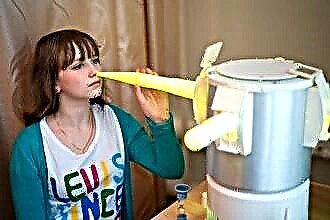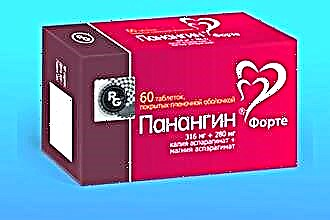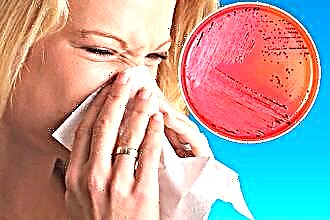Beer is a low-alcohol drink that is obtained from the fermentation of malt wort. Most varieties of the drink contain no more than 6% ethyl alcohol and a considerable amount of useful vitamins and minerals. For this reason, warm beer is used in traditional medicine to treat infectious diseases. A quality product is brewed on the basis of hops or barley, which contain phytoncides, organic acids, trace elements and biologically active substances. Moderate consumption of the drink is recommended for angina, due to its anti-inflammatory, immunostimulating and antiseptic properties.
Biochemical composition
 Can you drink warm beer with tonsillitis? Only those drinks that contain no more than 5-6% ethyl alcohol have pronounced therapeutic properties. Fortified drinks, the concentration of alcohol in which exceeds 6%, contain a minimum amount of nutrients. Their use for therapeutic purposes will be ineffective or useless. For the treatment of bacterial infections, it is more advisable to use alcohol, which includes hops or barley. Wheat, rye and rice beers are not as rich in nutrients. The composition of the classic drink includes the following components:
Can you drink warm beer with tonsillitis? Only those drinks that contain no more than 5-6% ethyl alcohol have pronounced therapeutic properties. Fortified drinks, the concentration of alcohol in which exceeds 6%, contain a minimum amount of nutrients. Their use for therapeutic purposes will be ineffective or useless. For the treatment of bacterial infections, it is more advisable to use alcohol, which includes hops or barley. Wheat, rye and rice beers are not as rich in nutrients. The composition of the classic drink includes the following components:
- thiamine;
- lactoflavin;
- pyridoxine;
- folacin;
- biotin;
- calcium pantothenate;
- niacin;
- silicon;
- sulfur;
- phosphorus;
- potassium;
- iron.
Important! The product should not contain toxic foam stabilizers (cobalt chloride and sulphate).
Pharmacodynamics
Official medicine does not recommend using even low-alcohol drinks for the treatment of infectious pathologies. But according to the adherents of traditional medicine, beer is an effective immunostimulating agent that can be used in the treatment of uncomplicated tonsillitis.
 A natural product that does not contain preservatives, flavors and prohibited foam stabilizers, it has a number of therapeutic properties:
A natural product that does not contain preservatives, flavors and prohibited foam stabilizers, it has a number of therapeutic properties:
- sedative - help to eliminate nervous overstrain;
- diaphoretic - stimulates the work of the sweat glands, which leads to more intense sweating;
- detoxifying - accelerates the process of removing toxic substances (metabolites of pathogens) from the body through sweat;
- antiseptic - inhibits the activity of pathogens in the foci of inflammation due to the presence of ethyl alcohol in the product;
- diuretic - inhibits the reabsorption of salt and water in the detoxification organs, which contributes to their excretion along with urine;
- vasodilator - stimulates blood circulation in the affected tissues by expanding the inner diameter of blood vessels;
- pain reliever - reduces the sensitivity of pain receptors, which helps to eliminate discomfort in the pharyngeal mucosa.
For the treatment of acute tonsillitis, only light beer is used, which contains a small amount of ethyl alcohol.
Contraindications
Low alcohol drinks can be used for therapeutic purposes only in the absence of obvious contraindications. It is undesirable to drink beer with hyperthermia, which is due to an increase in stress on the cardiovascular system. In addition, it is highly discouraged to use the product in the presence of the following diseases:
- diabetes;
- pyelonephritis;
- renal failure;
- cirrhosis of the liver;
- peptic ulcer;
- gastritis;
- acute phase of tonsillitis.

Low alcohol hot drinks are contraindicated during antibiotic therapy.
"Beer" therapy will be effective only in the initial stages of the development of tonsillitis. Purulent inflammation in the glands (palatine tonsils), subfebrile fever, gestational age and preschool age are key contraindications to alcohol use.
Warm or hot?
Can you drink hot beer with tonsillitis? ENT disease is characterized by damage to the pharyngeal mucosa and lymphadenoid formations. Hyperemic tissue is easy to injure, so hot alcohol can only aggravate the patient's well-being and prolong the recovery period. If you overboil a low-alcohol drink, this will lead to the destruction of most of the nutrients in its composition.
 For the treatment of catarrhal tonsillitis, only warm drinks and in moderation can be used. With the parallel use of medications, alcohol should be abandoned. Ignoring the recommendations can cause side reactions, which include:
For the treatment of catarrhal tonsillitis, only warm drinks and in moderation can be used. With the parallel use of medications, alcohol should be abandoned. Ignoring the recommendations can cause side reactions, which include:
- nausea;
- dizziness;
- hives;
- vomit;
- diarrhea;
- stomach ache.
When it enters the body, ethyl alcohol decomposes into several components.
One of the most toxic components of alcohol is acetaldehyde. Upon contact with medications, especially antibiotics, it turns into a toxic substance that negatively affects the functioning of the heart, detoxification organs and the respiratory system.
Recipes
How to drink beer with sore throat? To enhance the anti-inflammatory, immunostimulating and antimicrobial effect of the drink, additional ingredients are added to its composition. Warm drink is consumed at least 4-5 times a day, but in small portions. To prepare a medicinal solution, you can use the following recipes:
- honey: heat 250 ml of the drink to 40 degrees and dissolve 1 tbsp in it. l. flower honey;
- egg: mix the yolk, grated with sugar, with 150 ml of warm beer;
- garlic: in 200 ml of alcohol add 2 tbsp. garlic juice and ¼ tsp chopped cinnamon;
- lemon: mix 1 teaspoon of lemon juice and decoction of licorice root, pour the solution into 200 ml of alcohol.
For the treatment of bacterial infections, medicinal solutions should be taken 30 ml 4-5 times a day 30 minutes before meals. If you experience discomfort in the stomach, you should refuse to take low-alcohol drinks.

Rinses
To stop local manifestations of tonsillitis, it is not necessary to drink beer. Reorganization of the oropharynx with medicinal solutions based on a low-alcohol drink will be no less effective. For effective treatment of inflammation in the tonsils and pharyngeal mucosa, it is advisable to rinse the throat with saline before the procedure. This will help to eliminate a viscous secret from the walls of the ciliated epithelium, which will facilitate the penetration of useful components of the drug directly into the foci of inflammation.
To prepare the solution, you should:
- heat 200 ml of beer to 38 degrees;
- add 10 drops of propolis tincture to it;
- dissolve in a liquid ½ h. soda;
- gargle at least 4 times a day for 10 minutes.
If you use the solution in the presence of mechanical damage in the mucous membrane, you can get burned. To reduce the likelihood of damage, use a tincture to prepare the product, the concentration of alcohol in which does not reach 6-7%.



